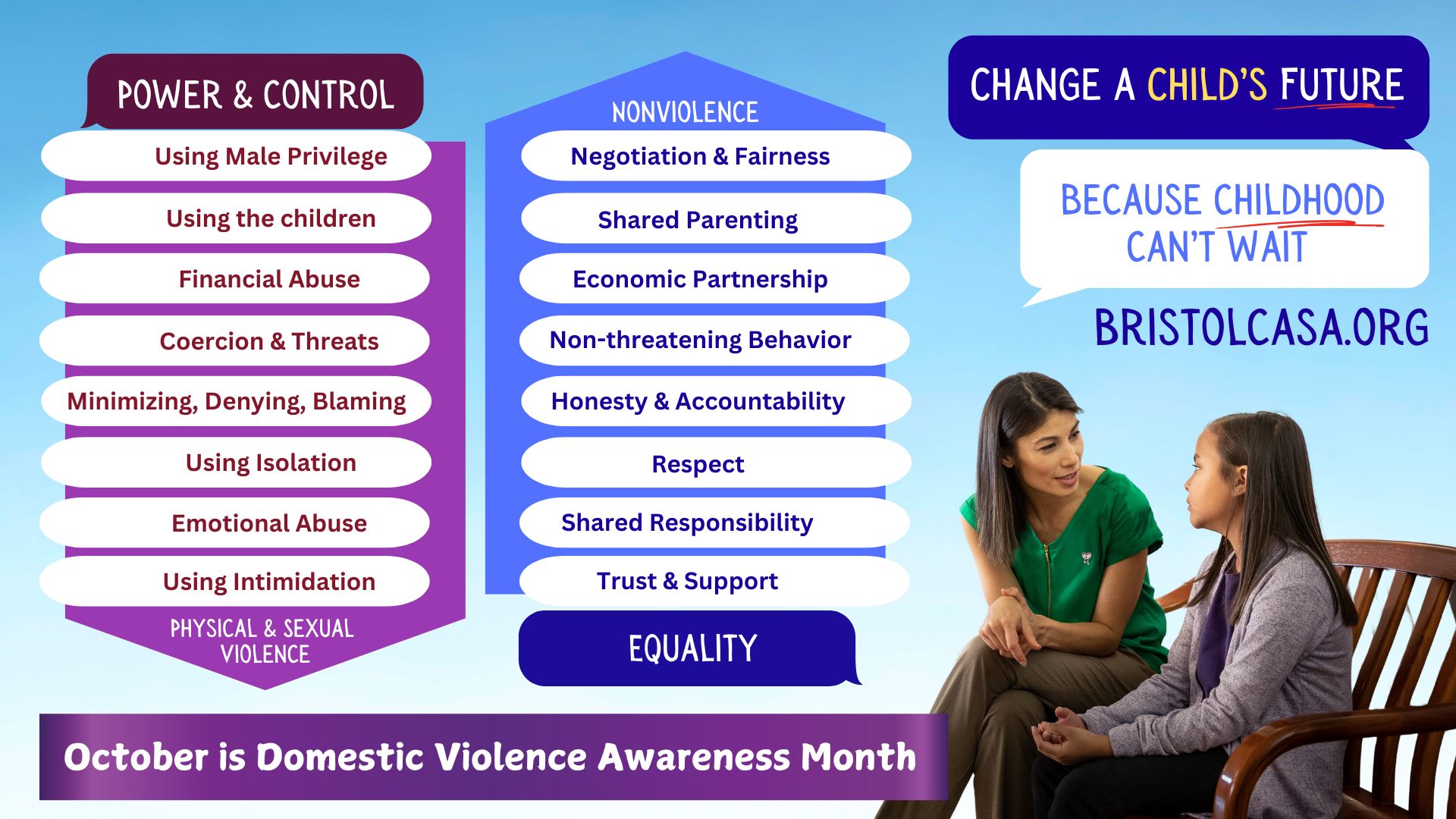Community
Domestic Violence Is Everyone’s Challenge: Here’s What You Can Do

The following piece is an Op-Ed submitted by Grey Hilliard-Koshinsky, the Founding Executive Director of CASA of Bristol County. They are a nationally recognized advocate, change-maker, and creator. Grey also brings the invaluable perspective of an adult with lived experience in the foster care system.
Thirty years ago, the Violence Against Women Act was signed into federal law, recognizing domestic violence and sexual assault as crimes and requiring a coordinated community response. Despite progress, domestic violence remains an epidemic, affecting people of all genders, ages, economic statuses, races, orientations, nationalities, abilities, and religions. It includes varied tactics used to gain control over another. Domestic violence is closely tied to foster care, and as a community member, you can help support children in foster care today.
During a training on Domestic Violence I was struck by the “Wheel of Power and Control,” presented by Social Impact Consultant and Co-Founder of SSDVCC, Adriana Raines. It illuminated how normalized domestic violence was for my siblings and me growing up. Many understand the pain of being bullied by someone close but wonder why people “refuse to leave” or “return to violence.” It’s not merely low self-esteem; coercive control often leaves victims without essential resources like money, housing, or support (H.4744). Victims, survivors and domestic violence fighters lack the emotional and financial foundation needed to leave.
Nuanced policies that move beyond “Batterers Intervention Programs” are necessary that focus instead on empathy, training for human services and law enforcement, and restorative justice models. In addition to accountability, intervention programs should cultivate healing to genuinely rehabilitate and prevent future abuse.
We can ensure our reflection shows progress from 2023, a year when “Domestic Violence left few communities untouched by grief and pain.” The challenges of leaving an abusive situation are even greater when children are involved. In Massachusetts, those fleeing domestic violence with children face added challenges to rebuilding their lives, compounded by scarce affordable housing. Following an assault, both in Massachusetts and nationwide, “child welfare agencies often cite abuse victims for child neglect, essentially holding them responsible for their own victimization.”
I’m the third generation of my family to experience ‘foster care.’ At age 5, four of my biological siblings and I were removed from our home and placed into foster care. We endured a cocktail of child abuse and torture that thrived unnoticed, produced at the intersections of addiction, mental illness and domestic violence. Although I first experienced domestic violence in my biological home, these patterns resurfaced in various forms throughout my time in foster care and later in my adult relationships.
As a society addressing deep-rooted challenges like domestic violence takes place on the ground floor of human suffering. This ‘ground floor’ represents the most fundamental level of pain, fear, and despair, where individuals and families experience profound vulnerability. Yet, it is also from this ground floor that the potential for human transformation and innovation emerges. In our darkest moments we find the greatest opportunity to effect real change.
In January 2023, Massachusetts became the first state in the nation to create a Domestic Violence Prevention Hotline specifically for abusers. More recently, in July 2024, Governor Healey signed into law Bill H.4744, which expands the definition of domestic violence to include coercive control and ‘revenge porn.’ These legislative efforts represent the kinds of innovative responses that arise when we confront suffering head-on, recognizing that transformation is possible even in the face of the most challenging circumstances.
Another community-driven solution at the intersection of domestic violence and foster care is Court Appointed Special Advocates (CASA) of Bristol County. Founded in November 2022, CASA of Bristol County, ensures the needs of children in foster care are met and their rights are protected both in courtroom and the community. Nearly 1,500 children in Bristol County require foster care advocacy. CASA of Bristol County is the first program of its kind in the South Coast, and the first new program of this type in Massachusetts in over two decades.
In recognition of October as National Domestic Violence Awareness Month—and throughout the year—you can support children and families facing domestic violence and foster care in Massachusetts. Resilience isn’t innate; it’s like a muscle that grows or atrophies. Built through relationships, resilience strengthens when individuals and communities unite. Together, we can build resilience by showing up for children navigating the trauma of domestic violence and foster care.





